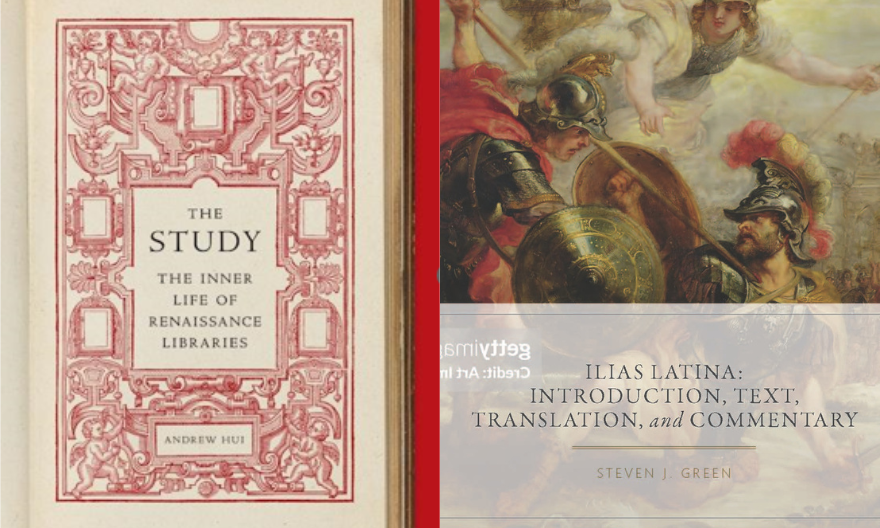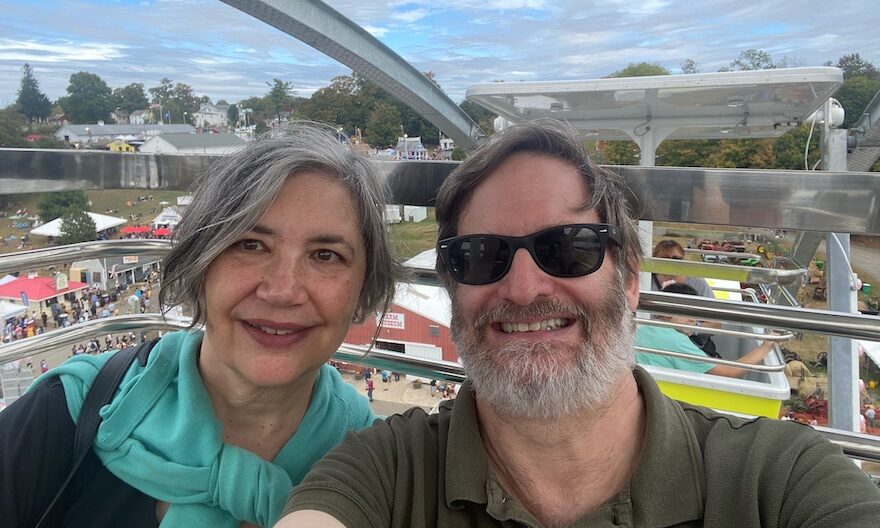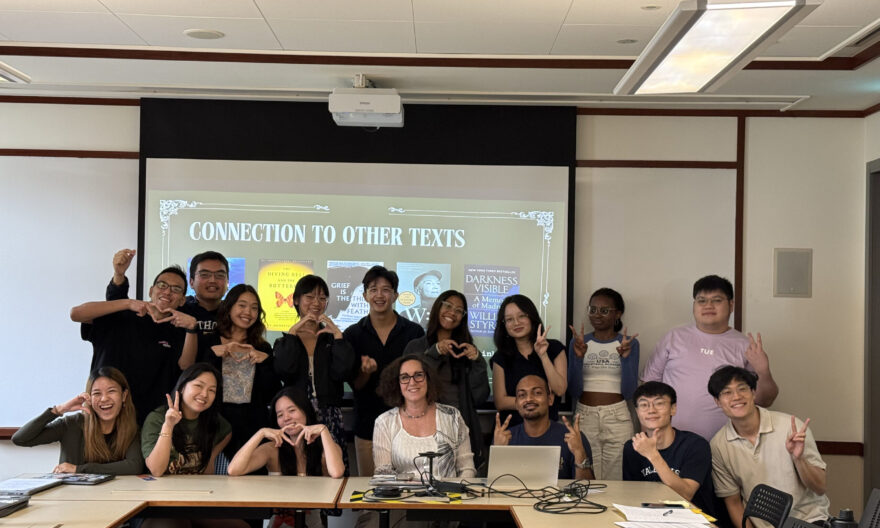Capstone projects draw on experiences from internships and a semester abroad
At Yale-NUS College, the capstone project provides an opportunity for final-year students to draw on their diverse experiences in college and apply them to their research. In this story on Capstones 2020, we share how our Science and Social Sciences majors accomplish this in their various capstone projects.
Last year, Yale-NUS piloted a new programme where final-year students could complete their capstones by participating in internships with industry partners. The programme is currently offered to final-year students in the Mathematical, Computational and Statistical Sciences (MCS) major.
As part of the new capstone-internship programme, Toby Limanto (Class of 2020) worked as a Data Scientist Intern at financial technology company RefinitivTM Labs. Attached to the Data Science team, Toby was involved in live projects and put in charge of a segment of product implementation.
“I think the capstone-internship programme is a great opportunity to gain more exposure to the industry and develop the skills necessary for a workplace environment. The experience gave me unique insights into project management, as well as communications with different stakeholders and team members,” Toby shared.
At Refinitiv, Toby’s responsibilities include designing algorithms, exploring and testing data science models’ suitability for a product.
Reflecting on his experience, Toby shared, “I received a lot of guidance from my company supervisor, thanks to our frequent interactions over the course of the internship. The experience was definitely valuable for my future career.”
For Lesley-Anne Tan (Class of 2020), her Global Affairs capstone project is particularly relevant to her upcoming job with the Civil Aviation Authority of Singapore (CAAS).
Her paper explores why international civil airspace disputes occur and the role that international organisations play in fostering inter-state cooperation. In particular, she looked at two case studies of airspace conflict and cooperation: Singapore and Malaysia, as well as the United Kingdom and Ireland.
Her capstone project was partly inspired by her internship at CAAS, where she was attached to the International Relations division. As an intern, Lesley-Anne was involved in matters concerning events and diplomacy.
“The internship made me realise how important civil airspace is, and appreciate the complexity behind inter-state disputes. There, I was also exposed to the intimate workings and the practical aspects behind state decisions relating to civil airspace. With my capstone project, I wanted to integrate the scholarship on aviation with international relations,” she says.
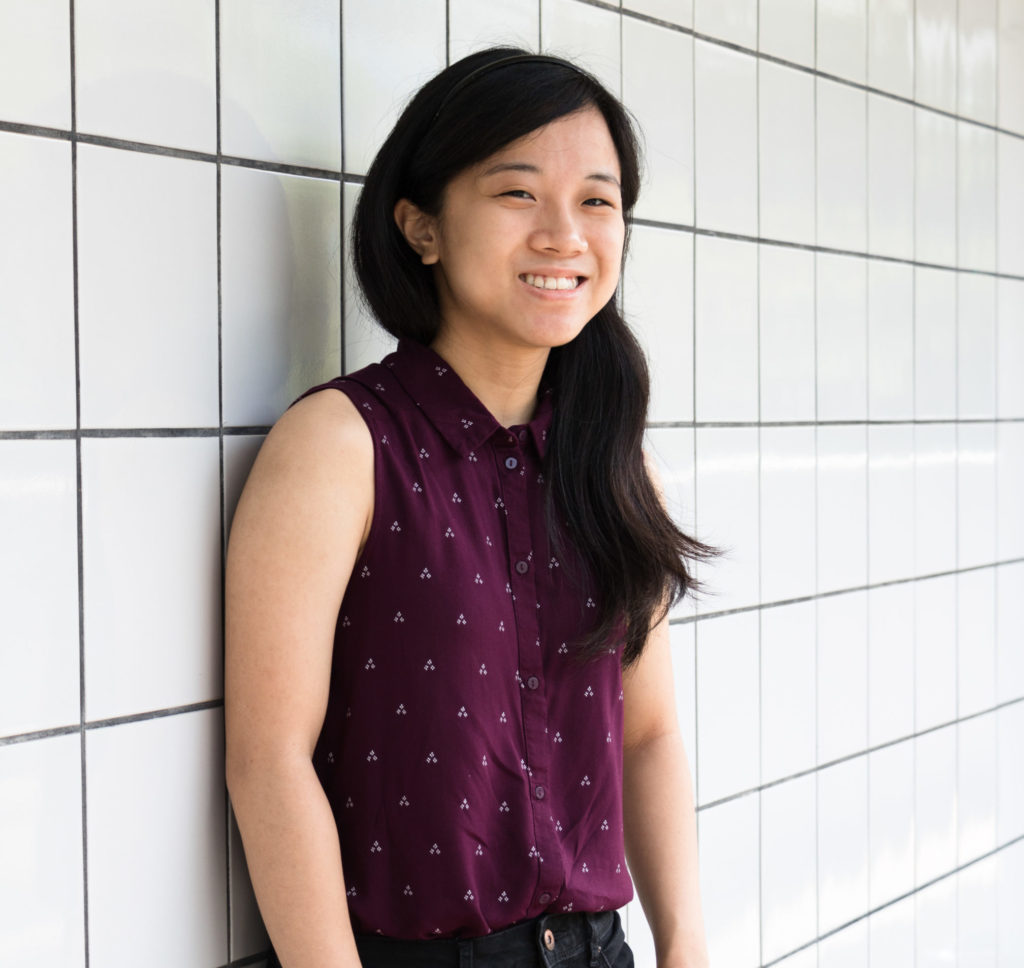 Image provided by Lesley-Ann Tan.
Image provided by Lesley-Ann Tan.
For his Environmental Studies capstone project, Ryan Yoong (Class of 2020) created a tabletop game, titled ‘Isle on Edge’. The semi-cooperative game sees players take on the role of different factions on a simulated island and work together to navigate possible environmental futures.
The game occupies what Ryan described as an “intersection between Environmental Studies, Future Studies and Game Design” and explores how narratives and emotions can affect environmental decision-making.
On his decision to create a tabletop game, Ryan said, “People feel invested in a game and naturally become engaged in solving the problem it poses. In this respect, games have the potential not only to entertain, but also to educate and generate productive conversations about environmental strategies.”
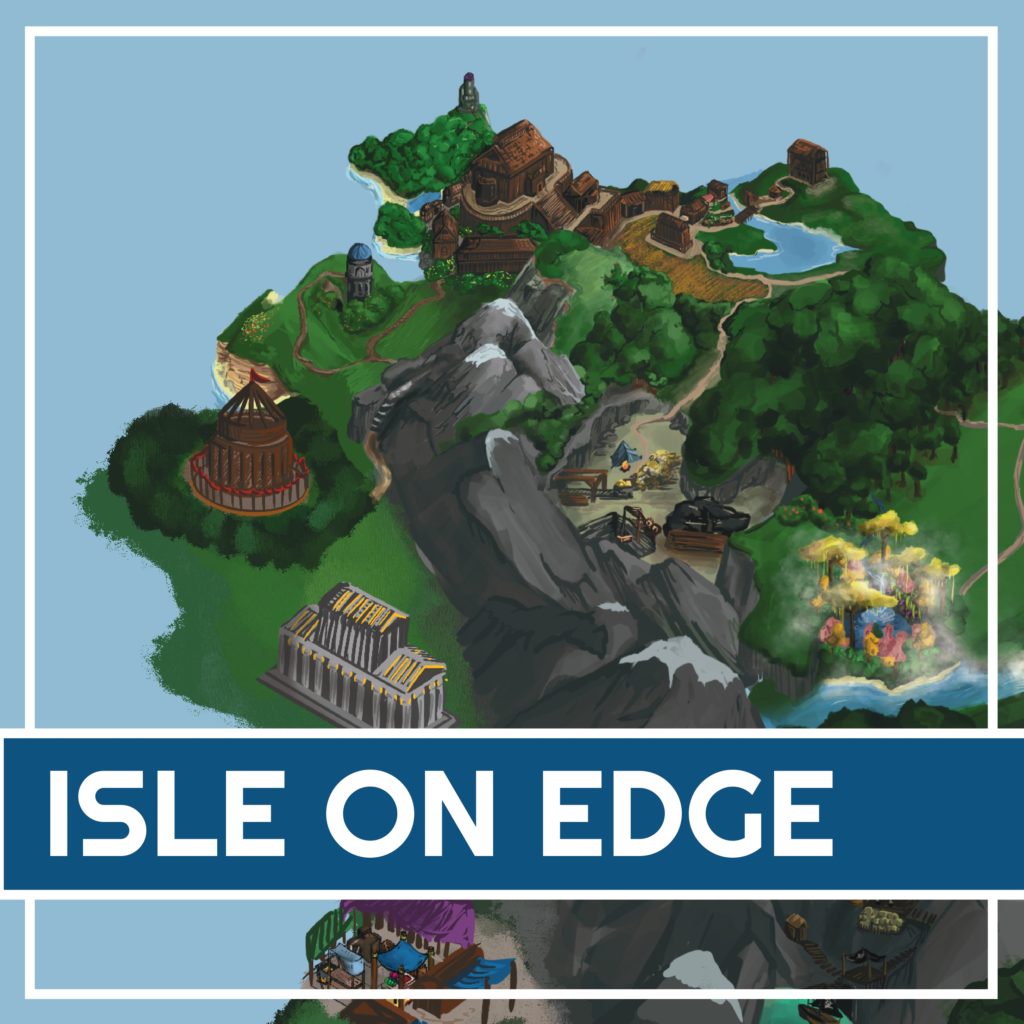 Artwork for Isle on Edge. Image provided by Ryan Yoong.
Artwork for Isle on Edge. Image provided by Ryan Yoong.
Ryan’s capstone project was heavily inspired by his semester abroad at the University of Hawaiʻi in Mānoa, Hawaiʻi. The pacific island’s setting, as well as its emphasis on self-sufficiency and indigenous knowledge systems all found their way into elements of the game’s design and mechanics.
To prepare for his capstone project, Ryan took two Independent Research modules with Yale-NUS Professor of Social Sciences (Environmental Studies) Michael Maniates on Game Design and Future Studies. He also conducted a round of play-tests within the Yale-NUS community earlier this semester.
Moving forward, Ryan plans to make the game available to a larger audience and hopes to produce it sustainably, through local artisans.
Joyce Li Tuen Yi (Class of 2020) is another student whose capstone project was influenced by her experiences on semester abroad. A Global Affairs major, Joyce described how her semester abroad at Georgetown University in Qatar sparked her curiosity about international politics in the Gulf region. There, Joyce took courses on Contemporary Gulf Security and Gulf Politics and Society.
“My capstone came from a place of curiosity as to why Saudi Arabia blockaded Qatar in June 2017. Living in the home city of Al-Jazeera, I was constantly surrounded by the latest news of the blockade. But I didn’t come across a good explanation about how the blockade came to be in the mass media,” she said.
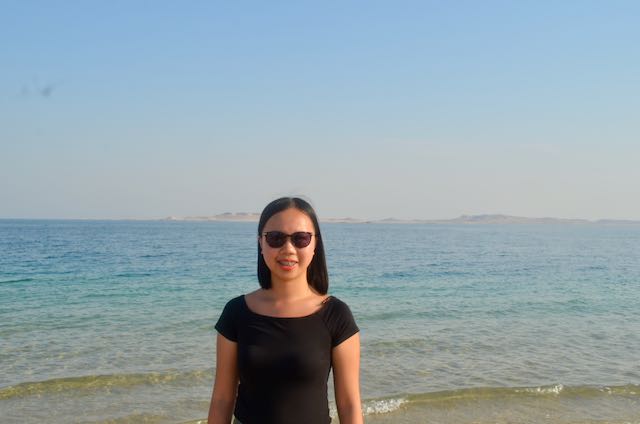 Joyce Li at Khawr al-Udayd, an inland sea between Qatar and Saudi Arabia. Image provided by Joyce Li.
Joyce Li at Khawr al-Udayd, an inland sea between Qatar and Saudi Arabia. Image provided by Joyce Li.
In her paper, titled ‘Big Brother of the Region: An Examination of Regional Hegemons’ Treatment of Subordinate States’, Joyce devised a theoretical framework to examine how political security of a ruling regime affected its treatment of subordinate states. In particular, she applied the framework to account for the blockade and evolution of Qatar-Saudi Arabia relations. For Joyce, her capstone project was a good opportunity for her to “ground International Relations theories in empirical realities”.
From internships to a semester abroad, these Yale-NUS have applied their diverse experiences to their capstone projects and gained new insights through working on them.
Read the Capstone 2020 story on Humanities capstones here .

